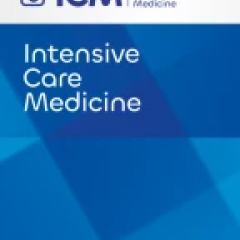UQ researchers will lead a major study on developing personalised fungal infection treatment approaches for cancer patients.
The PRAGMATIC study will investigate the benefits of treating cancer patients with tailored doses of the antifungal medication, voriconazole.
Professor Jason Roberts, Acting Director of the UQ Centre for Clinical Research and CRE RESPOND said researchers will use patient genomic information and computer software to define optimal dosing strategies for individual patients.
“This will help address a major concern for cancer patients,” Professor Roberts said.
“Up to 40 percent of people with blood cancer and up to 75 percent of paediatric cancer patients experience breakthrough fungal infections during treatments.
“Fungal infections can cause delays and modifications to cancer treatments and impact long-term health outcomes.
“They also increase costs for patients and health systems by raising the need for further medication and hospitalisation.”
The PRAGMATIC study comes at a time of heightened awareness over protecting Australian supplies of effective medications, and coincides with the World Health Organization developing a list of fungal pathogens that urgently require new treatments.
The PRAGMATIC study will be conducted in six Australian hospitals and one in North America.
“Our aim is to provide early and optimal treatment for fungal infections,” said Dr Parker, an Investigator on the Trial.
“We expect this study will be extended to other medications in the future where dosing software and genomic-testing can be used to provide safe and effective patient care.”
The PhaRmAcoGenoMics for better treatment of fungAl infecTions In Cancer (PRAGMATIC) study will run from 2023 to 2026 and is being funded by a Medical Research Future Fund (MRFF) grant.
The study is being conducted in collaboration with the Western Sydney Local Health District, Peter MacCallum Cancer Institute, Children's Health Queensland Hospital & Health Service, Central Adelaide Local Health Network, Sydney Children's Hospital Network, Department of Health Queensland - Pathology Qld, Herston Infectious Diseases Institute, South Australian Pathology and the Fred Hutchinson Cancer Centre, USA.



